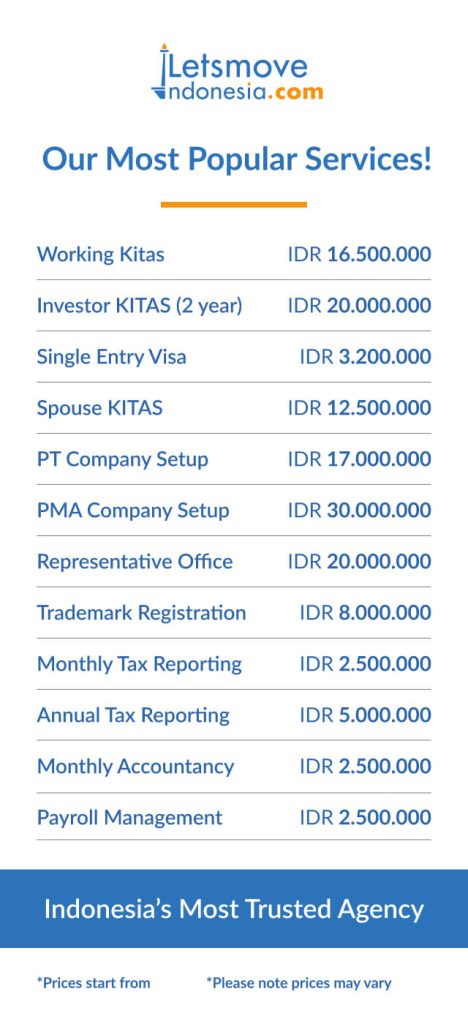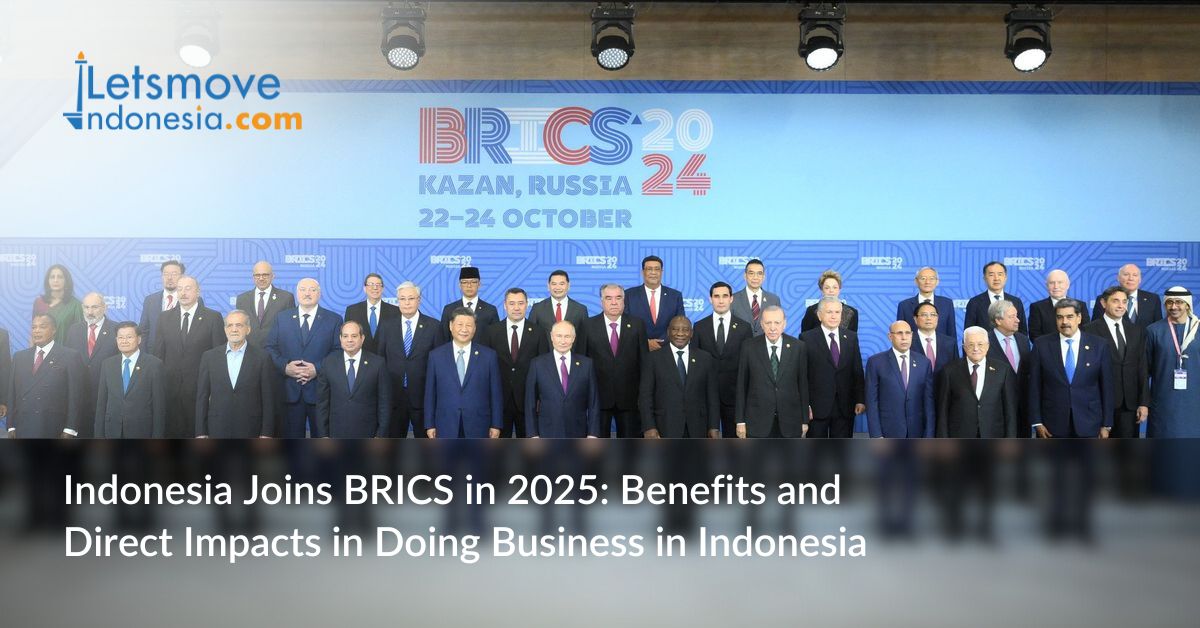Indonesia, a country known for its unparalleled natural beauty and rich cultural heritage, has emerged as an appealing investment destination for foreigners. Indonesia’s thriving real estate market provides enormous opportunities for those willing to explore its possibilities. The government has implemented several regulations that allow foreigners to purchase property in designated areas, sparking a surge in international interest.
Whether it’s a luxurious beachfront villa or a modern city flat, Indonesia has a wide range of options to suit every taste and budget. In this article, we will delve into the exciting prospects and highlight the important information that foreigners should be aware of before purchasing property in Indonesia.
Understanding the regulations for foreigners buying property in Indonesia is critical for anyone interested in investing in the country’s real estate market. Foreigners are permitted to purchase property in Indonesia, but there are certain restrictions and requirements that must be met.
One such requirement is that the property be leasehold, which means that it is on a long-term lease rather than freehold. Furthermore, foreigners are not permitted to directly own land in their own name but may do so through a local nominee or a foreign-owned company. It is also important to note that the size of the property that foreigners can purchase is limited. Overall, it is critical to thoroughly understand the regulations and to seek legal counsel when considering buying property in Indonesia as a foreigner.
Types of properties can foreigners own in Indonesia
Foreigners are permitted to own certain types of property in Indonesia. They can own condominium units within a building as long as they do not own more than 49% of the total units in the building. They can also own landed houses or villas within a specific complex or project if they have a valid lease agreement for at least 25 years, which can be extended for an additional 25 years. Foreigners should be aware of the specific regulations and restrictions that apply to property ownership in Indonesia.
The way foreigners buy property in Indonesia
Foreigners can buy property in Indonesia, but there are some restrictions and guidelines to follow. One option is to acquire property under a leasehold agreement, where the buyer leases the land for a certain period of time. Another option is to establish a limited liability company (PT PMA) with foreign ownership, which allows foreigners to own property through the company.
However, there are certain limitations on the size and type of property that foreigners can own, with different regulations depending on whether the property is in a rural or urban area. It is important for foreigners to understand the specific regulations and consult with legal advisors before purchasing property in Indonesia.
Foreigners’ restrictions on owning property in Indonesia
In Indonesia, foreign citizens face restrictions when it comes to owning property. According to the Presidential Decree, foreigners can only own property under a lease agreement for a maximum of 25 years, with an option to extend for another 25 years. They are not allowed to own land outright, except for certain cases where the land is connected to their business activities.
Additionally, foreigners must obtain approval from the Minister of Agrarian and Spatial Planning in order to obtain property rights in Indonesia. Overall, these restrictions aim to protect domestic property rights and control foreign investment in the country.
The advantages of owning property in Indonesia as a foreigner
The potential for high returns on investment is one advantage of owning property in Indonesia as a foreigner. Property appreciation and rental income are possible due to the country’s rapidly growing economy and tourism sector.
Furthermore, Indonesian laws have been revised to make property ownership more accessible to foreigners, allowing them to own property under certain conditions. This allows foreigners to diversify their investment portfolio by investing in the booming Indonesian real estate market.
The difference of property ownership rights in Indonesia
How does ownership in Indonesia differ for Indonesian citizens and foreigners?
The distinction in property ownership rights in Indonesia is between Indonesian citizens and foreigners. Indonesian citizens have the unrestricted right to own property in their own name, including land and houses.
Foreigners, on the other hand, are subject to certain property ownership restrictions. While they are permitted to own landed property such as houses and villas, they are not permitted to directly own land. Instead, depending on the type of lease agreement, they can only lease land for a maximum of 25 to 70 years. Foreigners are also barred from owning property on certain islands, such as those near national borders or strategic areas.
What are the regulations for foreign ownership of land in Indonesia?
The regulations regarding foreign ownership of land in Indonesia are quite strict. According to the Agrarian Law, foreign individuals and entities are not permitted to directly own land in the country. However, there are certain exceptions to this rule, such as for those who have obtained Indonesian citizenship, foreign representatives of foreign governments or international organizations, and those who are married to Indonesian citizens.
Additionally, foreigners are able to obtain land use rights through leasehold agreements, where they can lease land for residential or business purposes for a maximum period of 25 years, with the possibility of extending it for another 25 years. The difference in property ownership rights in Indonesia is aimed at protecting national interests and ensuring that Indonesian citizens have priority in land ownership.
The steps to purchase property in Indonesia as a foreigner
Understanding the requirements for property purchase by foreigners
When considering investing in Indonesia, it is critical to understand the requirements for foreign property purchases. A few key criteria must be met in order for a foreigner to purchase property in Indonesia. To begin, foreigners must have a valid visa and a resident permit in order to own property. Furthermore, there are regulations governing the maximum land size that foreigners can own, which varies depending on location.
It is also worth noting that foreigners are not permitted to own land on certain islands, such as Bali. Finally, to hold the property, foreigners are typically required to form a local nominee agreement or establish a foreign-owned company. Overall, it is essential for foreigners to thoroughly research and understand these requirements to ensure a successful property purchase in Indonesia.
Exploring the process of using an Indonesian nominee to buy property
When exploring the process of using an Indonesian nominee to buy property, there are several steps that need to be followed. As a foreigner, purchasing property in Indonesia can be a complex and challenging process. However, by utilizing the services of an Indonesian nominee, foreigners are able to bypass the restrictions on property ownership. The first step involves finding a suitable nominee who is willing to act as the legal owner of the property.
Then, a nominee agreement needs to be drafted and signed to ensure the foreigner retains control and benefits from the property. Finally, the property is registered under the nominee’s name, while the foreigner maintains control through a power of attorney or a lease agreement.
How can foreigners establish a PT PMA for property ownership in Indonesia?
Foreigners can establish a PT PMA (limited liability company with foreign ownership) to purchase property in Indonesia. The first step is to seek advice and assistance from a reputable notary or lawyer who specializes in foreign investment and property matters. Next, they need to acquire the necessary licenses, such as the Principle License and the Deed of Establishment from the Ministry of Law and Human Rights.
Following that, they must register with the Investment Coordinating Board, obtain a taxpayer identification number, and open a local bank account. Once these steps are completed, the PT PMA can proceed with purchasing property in accordance with Indonesian regulations.
The key considerations when buying a house or apartment in Indonesia
When buying a house or apartment in Indonesia as a foreigner, there are several key considerations to keep in mind. Firstly, it is important to understand the steps to purchase property in Indonesia as a foreigner. This typically involves obtaining necessary permits and licenses, such as a “Right to Use” for apartments or a “Right to Build” for houses.
Additionally, it is essential to fully understand the legal aspects and regulations surrounding property ownership in Indonesia, including restrictions on certain areas or types of property. Conducting thorough due diligence, such as checking the property’s legal documentation and ownership history, is also crucial before making a purchase. Lastly, working with a trusted agent or lawyer who has expertise in Indonesian real estate can greatly assist in navigating the process and ensuring a smooth transaction.
Limitations for foreigners when it comes to property ownership in Indonesia
Foreigners face several limitations when it comes to property ownership in Indonesia. One of the main limitations is the minimum price for property purchase, which is set at IDR 10 billion (approximately USD 700,000). Additionally, foreigners can only own property in the form of HGB (right-to-build) ownership, which grants them the right to build or possess buildings on land for a maximum of 80 years.
Ownership rights for landed houses and apartment units are limited, with foreigners only being able to acquire non-freehold rights such as leasehold or HGB. Navigating the regulations to own property in Jakarta can be complex, with strict requirements and bureaucratic processes. As for job creation implications, foreigners buying property in Indonesia can potentially contribute to the growth of the real estate sector and create employment opportunities in related industries.
The legal considerations for foreigners buying property in Indonesia
Foreigners buying property in Indonesia need to take into account several legal considerations. One important factor is understanding the role of an Indonesian spouse in property ownership. In some cases, foreigners may be required to have an Indonesian spouse in order to purchase the property. Another option is to explore the use of an Indonesian nominee in property transactions.
Indonesian law also provides certain protections for foreign property owners, although it can be complex and vary depending on the specific circumstances. However, potential risks and challenges still exist, such as difficulties in obtaining permits and limited land ownership rights. Foreign property owners also have legal obligations and responsibilities, such as ensuring compliance with local laws and regulations.
Found this article interesting? Then check out our other useful articles about home loan mortgage here!
Exploring Possibilities of The Expat Mortgage in Indonesia
Your Path to Property Ownership: Essential Steps for Obtaining Mortgage in Indonesia
Decoding Indonesian Mortgage Products: The Essential Guide for Homebuyers
Top Banks that Partnered with LetsMoveIndonesia for Mortgage
Get Your Desired Mortgage with LetsMoveIndonesia: What You Need to Know











